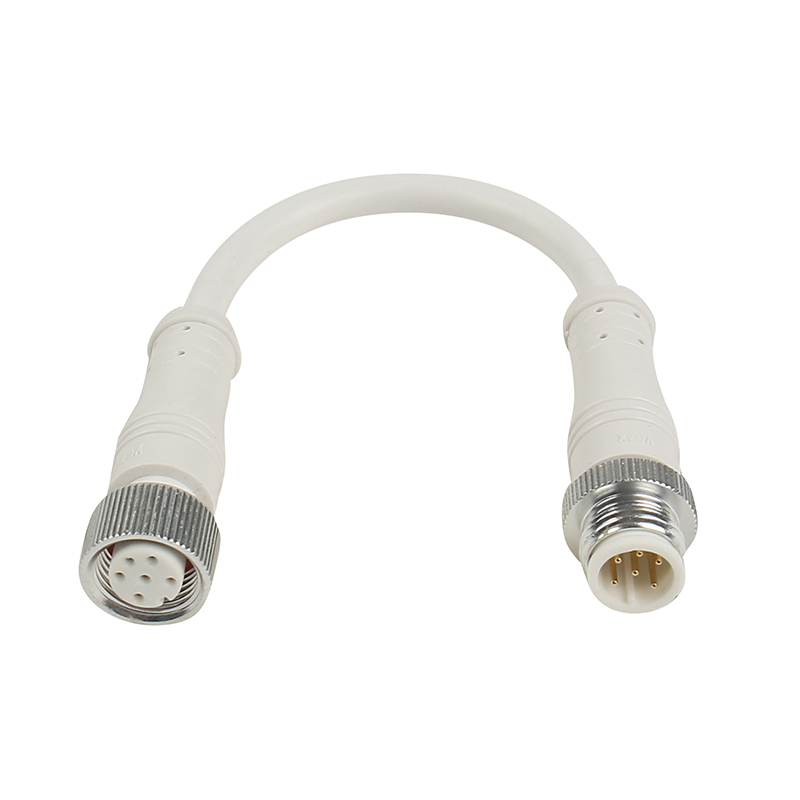News


News

The Critical Role of 6-Pin Waterproof Wire Connectors in Smart Irrigation Systems
Release time:2025-04-26
viewed:374
In modern agricultural automation, smart irrigation systems rely on seamless communication between soil moisture sensors, weather stations, and control units to optimize water usage and crop yields. However, harsh farming environments—exposure to mud, chemical sprays, and extreme temperatures—pose significant challenges to electrical connections. 6-pin waterproof wire connectors have emerged as a cornerstone of reliability, ensuring uninterrupted data and power transmission even in the most demanding conditions. This article explores how these connectors overcome agricultural challenges and enable precision farming.

Risk: Mud and debris from irrigation channels or machinery can clog connector ports, leading to short circuits or corrosion.
Data: Non-waterproof connectors in muddy environments fail at a rate of 45% within three months, while IP67/IP68-rated 6-pin waterproof wire connectors reduce failures to <5%.
Risk: Chemicals like organophosphates (pesticides) and ammonium nitrate (fertilizers) accelerate oxidation of metal contacts and degrade insulation.
Case Study: A Midwest U.S. farm reported 32% sensor signal loss within six months due to corroded PVC connectors.
Risk: Desert regions experience temperature fluctuations from -10°C to +50°C, causing plastic housings to crack and seals to lose elasticity.
Standard Compliance: Connectors must pass IEC 60068-2-14 thermal cycling tests.
Design Features:
Dual Silicone O-Rings: Withstand temperatures from -55°C to +200°C, blocking mud and water.
Overmolded Cable Entry: Eliminates capillary water ingress, achieving IP68 submersion resistance (1 meter for 24 hours).
Self-Cleaning Contacts: Gold-plated pins (≥0.5µm) minimize dirt adhesion, maintaining contact resistance below 5mΩ.
Housing Options:
316 Stainless Steel: Ideal for corrosive pesticide environments.
PPS Plastic: Resists acids and alkalis (pH 2–12), commonly used in fertilizer-rich soils.
Plating Choices: Gold or silver plating prevents oxidation in chemical-laden air.
Material Science:
PBT Housings: Retain structural integrity from -40°C to +125°C.
FKM Seals: Maintain elasticity in extreme cold or heat, ensuring long-term IP68 compliance.
A 500-hectare farm in California faced frequent irrigation failures due to connector corrosion and mud ingress. Traditional connectors required monthly replacements, reducing irrigation accuracy by 20%.
The farm upgraded to 6-pin waterproof wire connectors with:
IP68-rated stainless steel housings.
Gold-plated contacts for chemical resistance.
Shielded cables to suppress EMI from nearby pumps.
Failure Rate: Dropped from 15% to near-zero over 12 months.
Cost Savings: $12,000 annually in maintenance and labor.
Efficiency: Soil moisture monitoring accuracy improved from ±15% to ±5%.
IP Rating: IP68 for submersion; IP69K for high-pressure washdown.
Current/Voltage:
Signal pins: 0.5A, 30V DC (sensors).
Power pins: 10A, 48V DC (solenoid valves).
Material Compatibility:
Stainless steel or PPS for chemical resistance.
Silicone seals for temperature flexibility.
Certifications: UL 1977, IEC 61076-2-104 (vibration resistance).
Installation:
Use crimping tools (e.g., Molex 63819-0400) with 50–70N force.
Apply thread lockers to prevent loosening (torque: 0.8–1.2N·m).
Maintenance:
Inspect seals quarterly; reapply silicone grease (e.g., Dow Corning DC4).
Test insulation resistance annually (>100MΩ).
6-pin waterproof wire connectors are indispensable for modern smart irrigation systems, offering robust resistance to mud, chemicals, and extreme temperatures. By selecting connectors with IP68/IP69K ratings, corrosion-resistant materials, and certified durability, farmers and engineers can ensure reliable, low-maintenance operations. As agriculture embraces automation, these connectors will remain vital to achieving precision, efficiency, and sustainability.